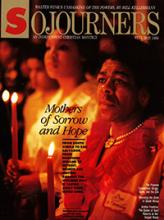It was a decade ago that several members of Sojourners Community temporarily moved into an apartment building with a neighborhood family to try to preserve six low-income apartments there. Despite the effort, the building was sold to a young professional couple at a handsome profit, the remaining family was evicted just as the other five had been, and the Sojourners members who had "occupied" the house were carted off to jail. A court-appointed defense attorney whose services had been refused made a memorable parting comment to the defendants: "Your best defense is insanity; anybody who thinks they can fight gentrification in this city is crazy."
Read the Full Article

Already a subscriber? Login
